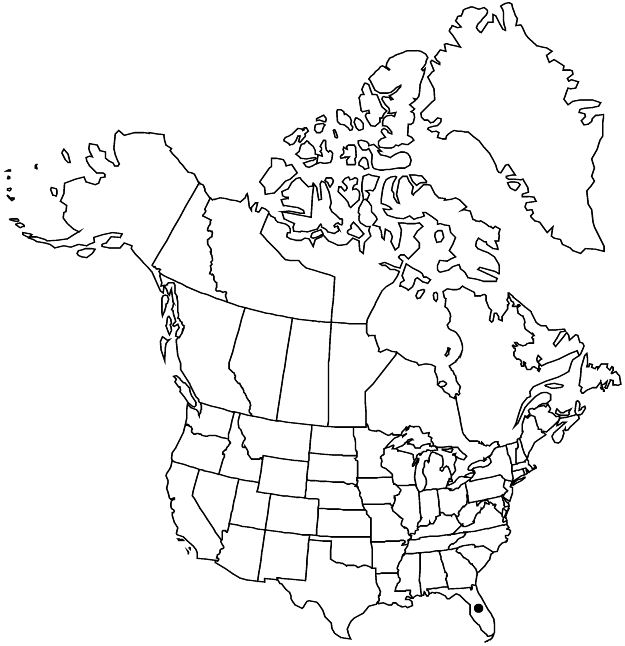Euphorbia mendezii
Cent. Euphorb., 15. 1860.
Herbs, annual or perennial, with slender taproot. Stems prostrate, often mat-forming, 8–35 cm, usually villous along margins, lower surface glabrous, upper surface usually strigillose to puberulent, rarely glabrous or glabrate. Leaves opposite; stipules usually distinct or connate basally, rarely completely connate, deltate, laciniate, glabrous or pilose (lower side), forming narrow deltate scale, sometimes apically 2-fid or laciniate, glabrous (upper side), 0.4–1.9 mm; petiole 0.3–1.2 mm, glabrous, pilose or villous; blade oblong to obovate, 4–12 × 2–7 mm, base asymmetric, one side attenuate, cuneate or rounded, other rounded or cordate, margins serrulate at least distally, apex obtuse, surfaces glabrous or sparsely sericeous, pilose or villous; 3-veined at base. Cyathia solitary at nodes or on short, congested axillary branches; peduncle 0.9–2.5 mm. Involucre campanulate or obconic, 0.8–1 × 0.7–0.8 mm, usually glabrous, rarely sparsely pilose toward apex; glands 4, pink, reniform, oblong or elliptic, 0.1 × 0.2–0.3 mm; appendages absent or white to pink, oblong, flabellate or forming narrow rim around edge of gland, 0.1–0.3 × 0.3–0.6 mm, distal margin usually entire, sometimes lobed. Staminate flowers 6–15. Pistillate flowers: ovary usually pilose or villous with hairs concentrated along keels, rarely glabrous; styles 0.2–0.3 mm, 2-fid 1/2 length. Capsules ovoid, 1.2–1.6 × 1.2–1.4 mm, usually pilose or villous with hairs concentrated along keels, often glabrous in between, very rarely completely glabrous; columella 1–1.4 mm. Seeds reddish brown to orange or gray-pink, narrowly ovoid, 4-angled in cross section, 0.9–1.2 × 0.5–0.6 mm, almost smooth or with 5–7 faint transverse ridges that do not pass through abaxial keel.
Phenology: Flowering and fruiting year-round.
Habitat: Disturbed areas.
Elevation: 0–10 m.
Distribution

Fla., Mexico, West Indies, Central America, n South America.
Discussion
Euphorbia mendezii is a common weed distributed widely throughout Mexico and Central America. Within the flora area the species is known only from southern Florida.
Selected References
None.